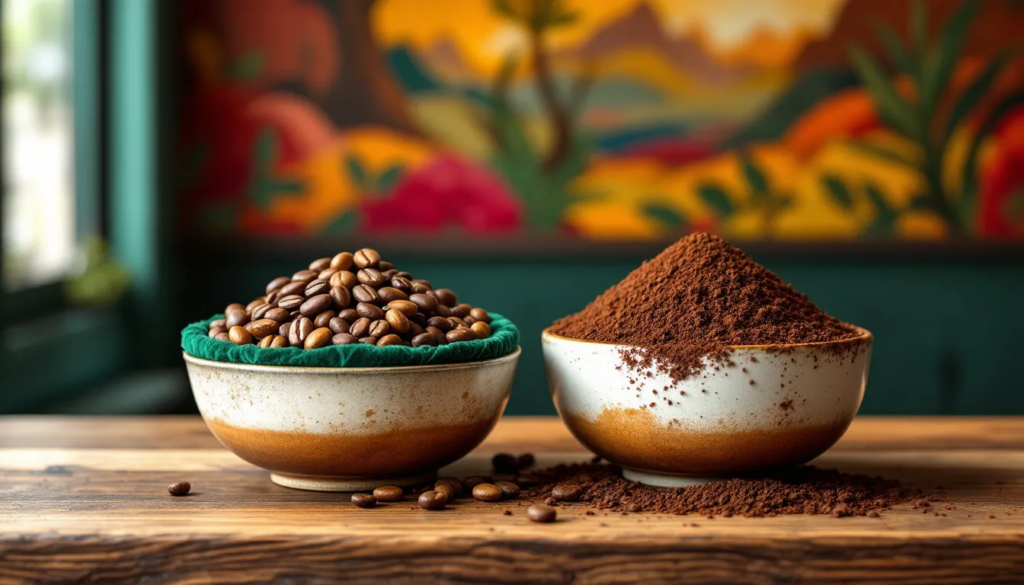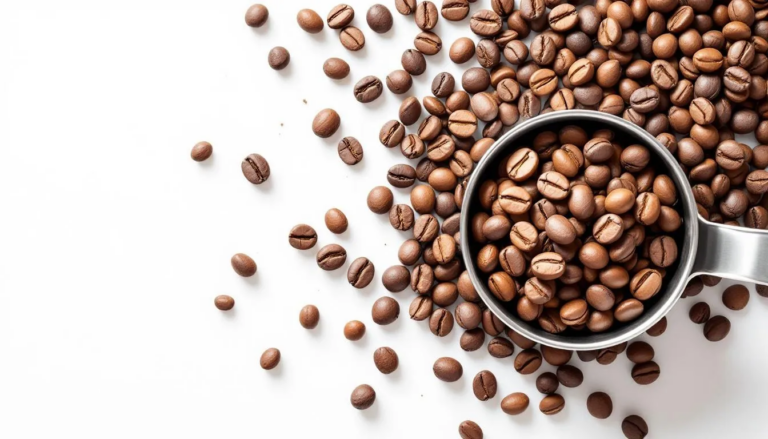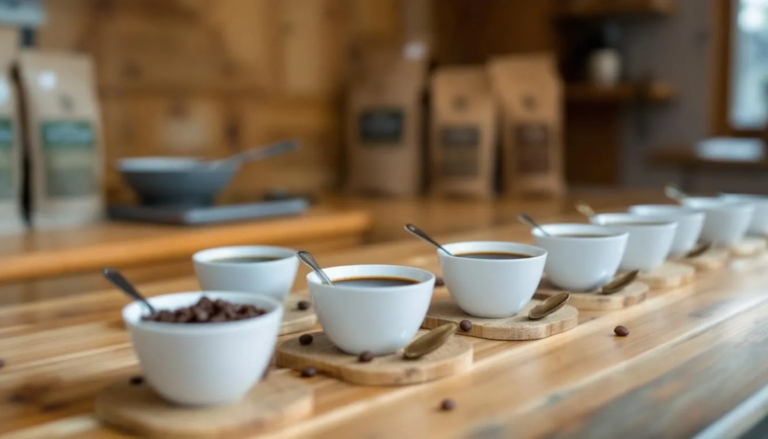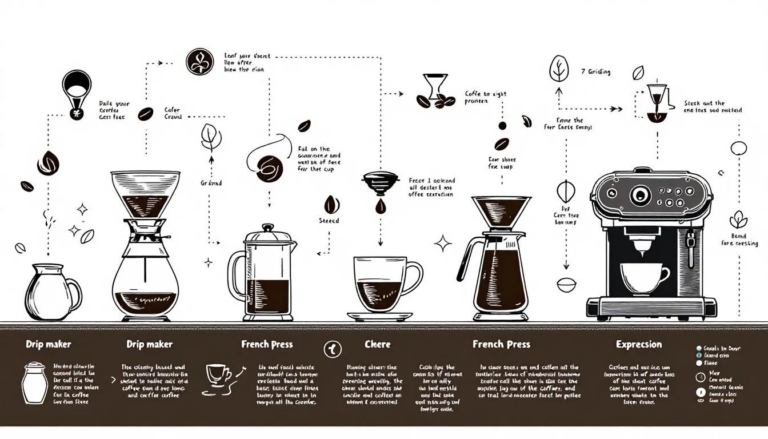Searching for great whole bean coffee? This guide explains what makes some beans stand out, covering key factors like flavor, origin, and freshness. We’ll also share expert tips and top recommendations.
Key Takeaways
- Choosing the right coffee beans, like Arabica for smoothness or Robusta for strength, is essential for flavor.
- Freshness matters—recently roasted whole beans offer the best taste, so buy in small amounts and store properly.
- Deciding between whole bean and ground coffee comes down to preference, but whole beans generally provide better flavor and freshness.
The Quest for Great Whole Bean Coffee
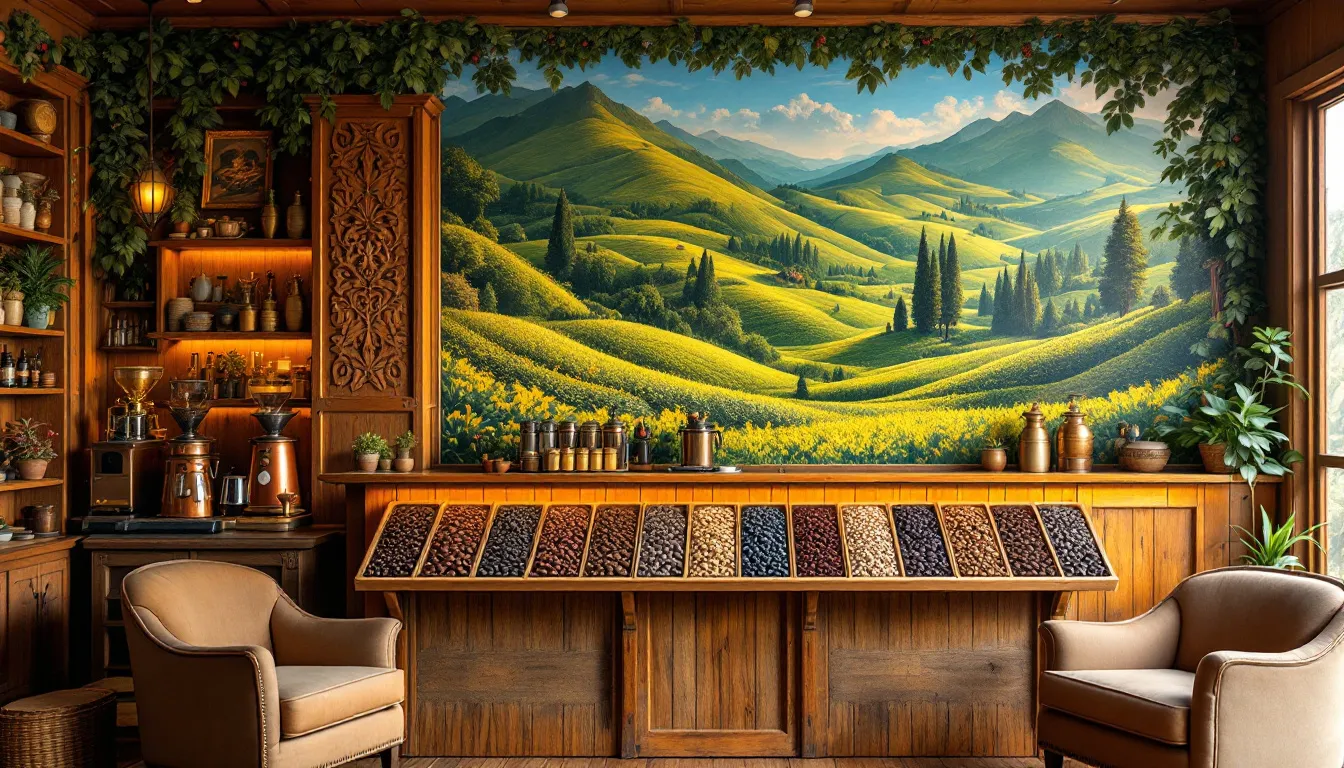
The foundation of a great cup of coffee lies in the beans themselves. The two most commonly used types of beans are Arabica and Robusta. Arabica beans are known for their smooth, complex flavors, while Robusta beans offer a stronger, more bitter taste. Selecting the right type of bean can significantly influence the flavor and quality of your brew.
High-quality coffee beans are often sourced from specific regions, ensuring a consistent flavor profile. Areas like Ethiopia, Colombia, and Brazil are renowned for producing some of the world’s best coffee beans and good coffee. These regions provide the ideal climate and soil conditions for coffee cultivation, resulting in beans with minimal defects and exceptional taste. Among the best selling coffees, Death Wish Coffee Dark Roast stands out for its popularity and strong flavor profile.
The processing method of coffee beans also plays a crucial role in determining their flavor. Natural processing, where the beans are dried with the fruit still attached, can impart fruity and sweet notes, including hints of black cherry. On the other hand, washed processing removes the fruit before drying, resulting in a cleaner, brighter flavor. For instance, Stumptown Coffee Roasters is celebrated for its robust coffees with rich, complex flavor profiles, showcasing the impact of careful bean selection and processing methods.
What to Consider When Buying Whole Bean Coffee
When buying whole bean coffee, several factors can significantly impact the quality and flavor of your brew. Here are some key considerations to keep in mind:
Roast Profile: Understanding Dark Roast Coffee and More
Roast profile refers to the level of roasting that coffee beans undergo, which can significantly influence their flavor, aroma, and color. Here’s a closer look at the differences between dark roast coffee and medium roast coffee beans:
Single Origin vs Blends: What’s Best for You?
Choosing between single origin and blended coffees is a matter of personal preference. Single origin coffee is sourced from a single producer, region, or country, allowing the unique characteristics of that area’s terroir to shine through. This type of coffee often showcases distinct flavors that reflect its origin, making each cup a unique experience.
On the other hand, blends combine beans from multiple regions or producers, creating a harmonious balance of flavors. Blending allows coffee roasters to craft a complex and well-rounded taste profile that can suit various brewing methods. For example, a blend might feature nutty, citrus, apricot-like sweetness, and hints of brown sugar with a slightly astringent acidity, offering a delightful balance that appeals to a wide range of palates.
Medium roast blends, in particular, are known for their bright acidity and impressive flavor balance. These blends can offer a variety of tasting notes, from fruity berries to caramel-like sweetness, providing a versatile and enjoyable coffee experience. Whether you prefer the complexity of a blend or the distinctiveness of a single origin, there’s a perfect coffee out there for you.
The Importance of Freshness in Whole Bean Coffee
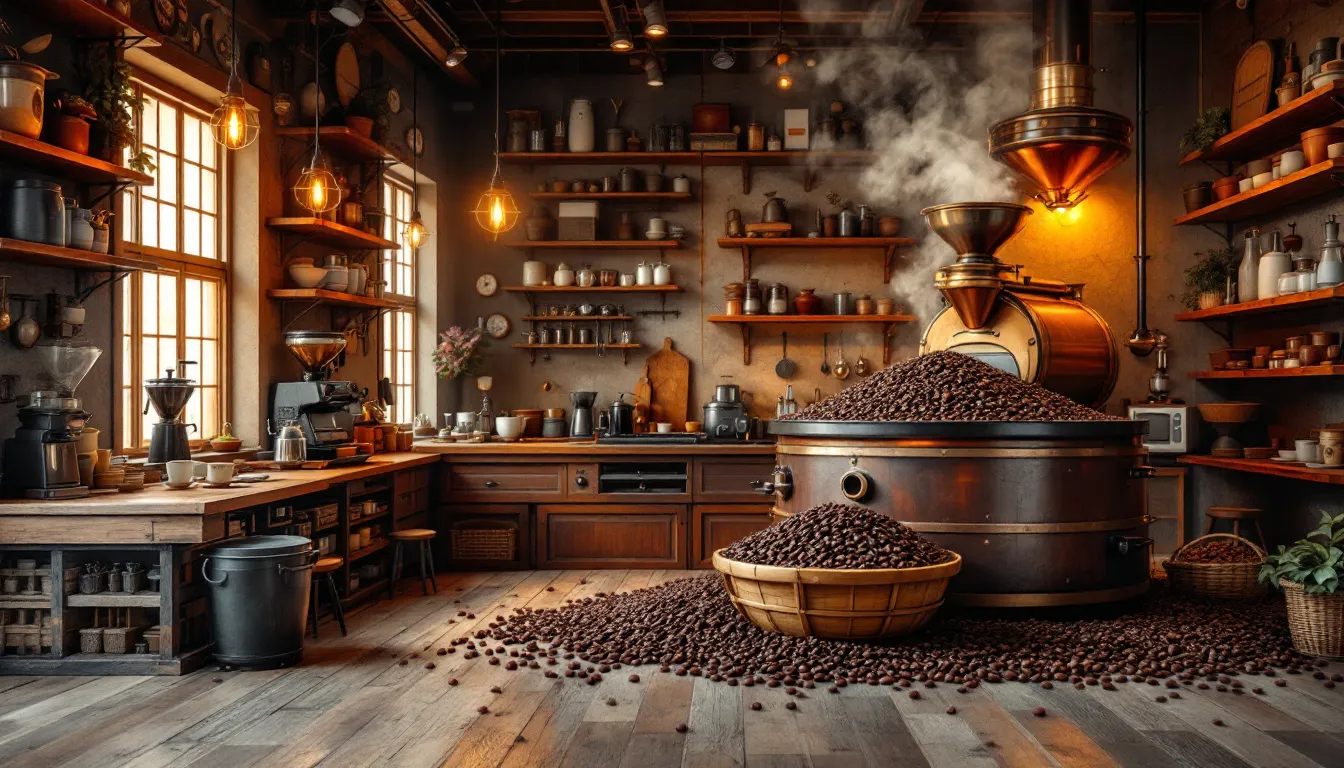
Freshness is paramount when it comes to the freshest coffee. Beans with a recent roast date deliver the richest flavors and aromas, while older beans lose their complexity and vibrancy. The key to enjoying the best coffee is to choose beans that have been roasted recently and to consume them within a few weeks of purchase.
Freshly roasted coffee beans boast a more complex flavor profile, which diminishes as they age. This is due to the loss of natural oils and aromas that contribute to the coffee’s unique taste. Maintaining freshness involves buying coffee in small amounts and storing it correctly to reduce exposure to air, light, and moisture.
Proper storage preserves the freshness of coffee beans. Vacuum-sealed bags and airtight, opaque containers effectively keep beans fresh by reducing oxidation and shielding them from light. These storage guidelines ensure your coffee remains fresh, keeping each cup as flavorful as the first.
Choosing the Right Whole Bean Coffee for Your Brewing Method
Different brewing methods require different types of whole bean coffee to achieve the best flavor and extraction. Here are some tips for choosing the right coffee for your preferred brewing method:
Tips for Brewing the Perfect Cup
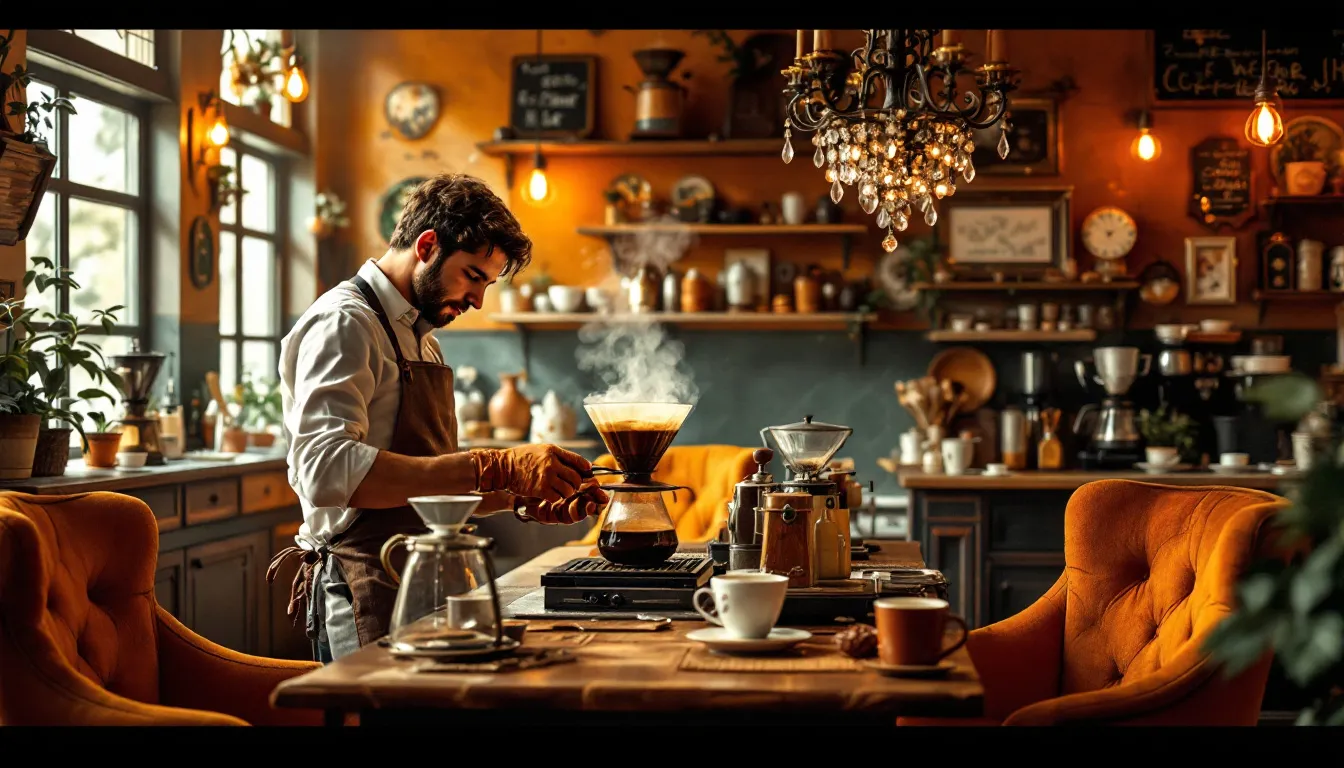
Brewing the perfect cup of coffee starts with freshly ground beans. Grinding your coffee just before brewing helps preserve its fresh flavor, as exposure to air can quickly diminish its quality. Whole beans tend to produce a richer bloom during brewing, enhancing the overall flavor experience.
The grind size is another crucial factor in extracting the optimal flavors from your coffee beans. Different brewing methods require different grind sizes; for instance, a coarse grind is ideal for French press, while a fine grind is perfect for espresso. Adjusting the grind size to suit your brewing method ensures you extract the best possible flavors from your beans.
Experimenting with different brewing methods, such as pour-over, French press, or espresso, can also help you find your perfect cup. Each method offers a unique way to experience the nuances of your coffee, allowing you to tailor your brew to your taste preferences. By paying attention to these details, you can elevate your coffee ritual to new heights.
How to Store Your Whole Bean Coffee for Maximum Freshness
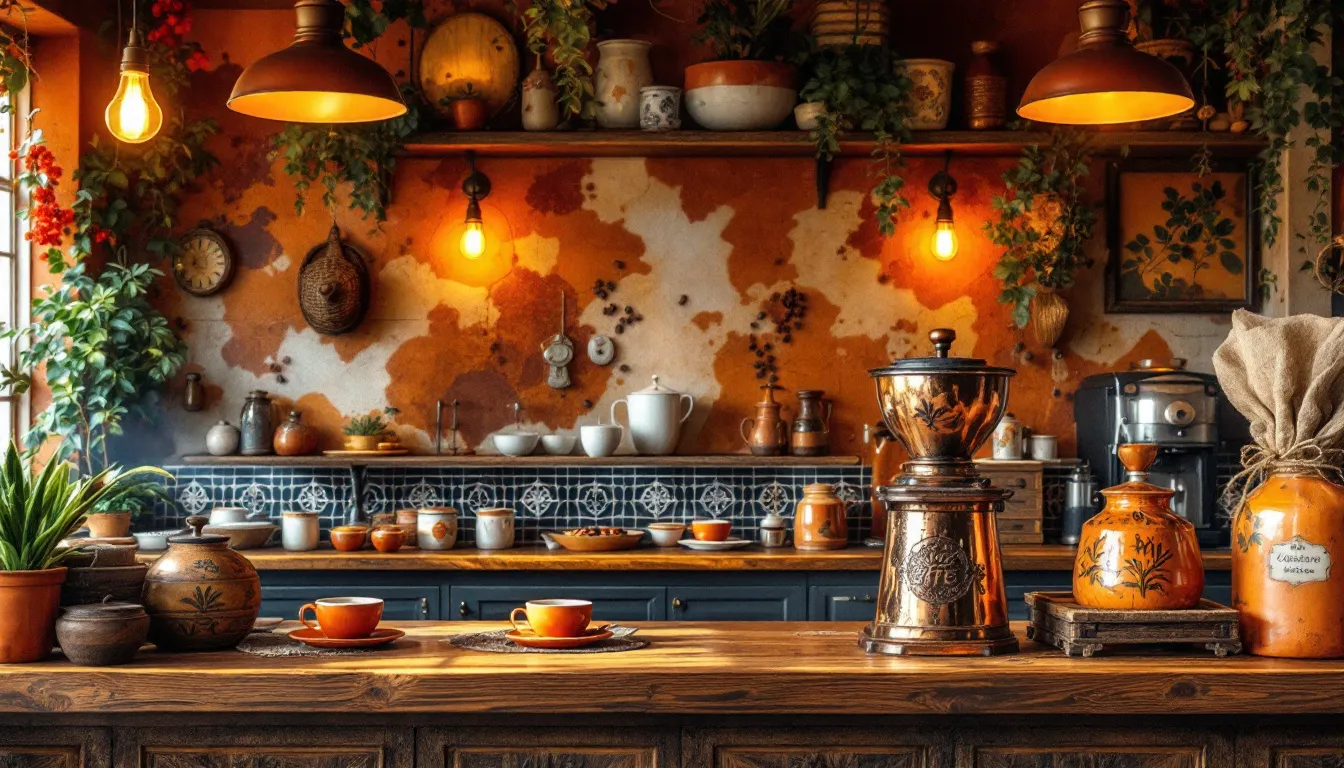
To keep your coffee beans fresh, proper storage is essential. Here are some tips:
- Store your beans in airtight containers to prevent exposure to air, moisture, heat, and light.
- Avoid storing beans in the refrigerator, as the moisture can negatively affect their quality.
- Keep your coffee beans in a cool, dark place to maintain their flavor and aroma.
These elements can accelerate the staling process, leading to a loss of flavor and aroma.
It’s best to keep your coffee beans in a cool, dark location, away from heat sources like ovens and direct sunlight. Using opaque containers helps block light, which can deteriorate the coffee’s flavor. By following these storage practices, you can significantly extend the freshness of your beans.
If you’re considering freezing your coffee beans, ensure they are stored in an airtight container to avoid moisture absorption and odor retention. Freezing can be a viable option for long-term storage, but it’s crucial to protect the beans from freezer burn and other contaminants. Properly stored beans will maintain their quality and flavor, ready to brew a delicious cup whenever you need it.
Best Medium Roast Coffee Beans
Medium roast coffee beans are prized for their appealing balance of flavors. These beans cater to those looking for a harmonious cup, offering a perfect blend of body, acidity, and flavor. A well-crafted medium roast blend ensures that all components complement each other, resulting in a smooth and enjoyable coffee experience.
For those seeking a stronger yet smooth experience, the best dark roast coffee offers robust flavors without excessive bitterness. Specific dark roast blends, such as French Roast or Italian Roast, feature unique tasting notes like deep chocolate, smoky undertones, and hints of spice. These blends often originate from regions known for their bold coffee profiles, providing a rich and satisfying cup.
Many of the best medium roast coffees have been noted for their smoothness and lack of bitter notes. This makes them an excellent choice for coffee drinkers who prefer a balanced and versatile cup. The medium roast process brings out the beans’ natural sweetness and complexity, making each sip a delight.
Exploring different medium roast options and dark roast options can help you find your perfect brew. Dark roast coffees, with their rich, bold, and smoky notes, offer a stark contrast to the lighter, more acidic medium roasts. Additionally, dark roast coffees are often praised for their potential benefits, such as a calming effect on sensitive stomachs. Whether you enjoy the bright, fruity notes of a single origin or the rich, caramel-like flavors of a blend, medium roast coffee beans and dark chocolate offer a satisfying and well-rounded experience for any coffee lover.
Specialty Coffee Options: Unique and Exotic Options
If you’re looking to expand your coffee horizons and try something new, consider exploring specialty coffee options. These unique and exotic coffees offer distinct flavors and characteristics that can elevate your coffee experience. Here are a few options to consider:
Organic vs Non-Organic Coffee Beans
Organic coffee is defined as coffee that is cultivated without the use of synthetic pesticides or fertilizers, certified by the USDA. This certification ensures that the coffee is grown using sustainable and environmentally friendly practices. However, many smaller farms opt not to pursue organic certification due to the high costs and rigorous requirements, even though they may practice organic farming.
The quality of coffee does not solely depend on whether it is organic. Factors like soil quality and growing conditions play a significant role in determining the flavor and quality of the beans. Some of the best coffees in the world may not be certified organic, yet they offer exceptional taste and quality.
Choosing between organic and non-organic coffee ultimately comes down to personal preference and values. If sustainability and environmental impact are important to you, organic coffee might be the way to go. However, if you’re focused on finding the best tasting coffee, it’s worth exploring both options to see which you prefer.
Whole Bean vs Ground Coffee: Which is Better?
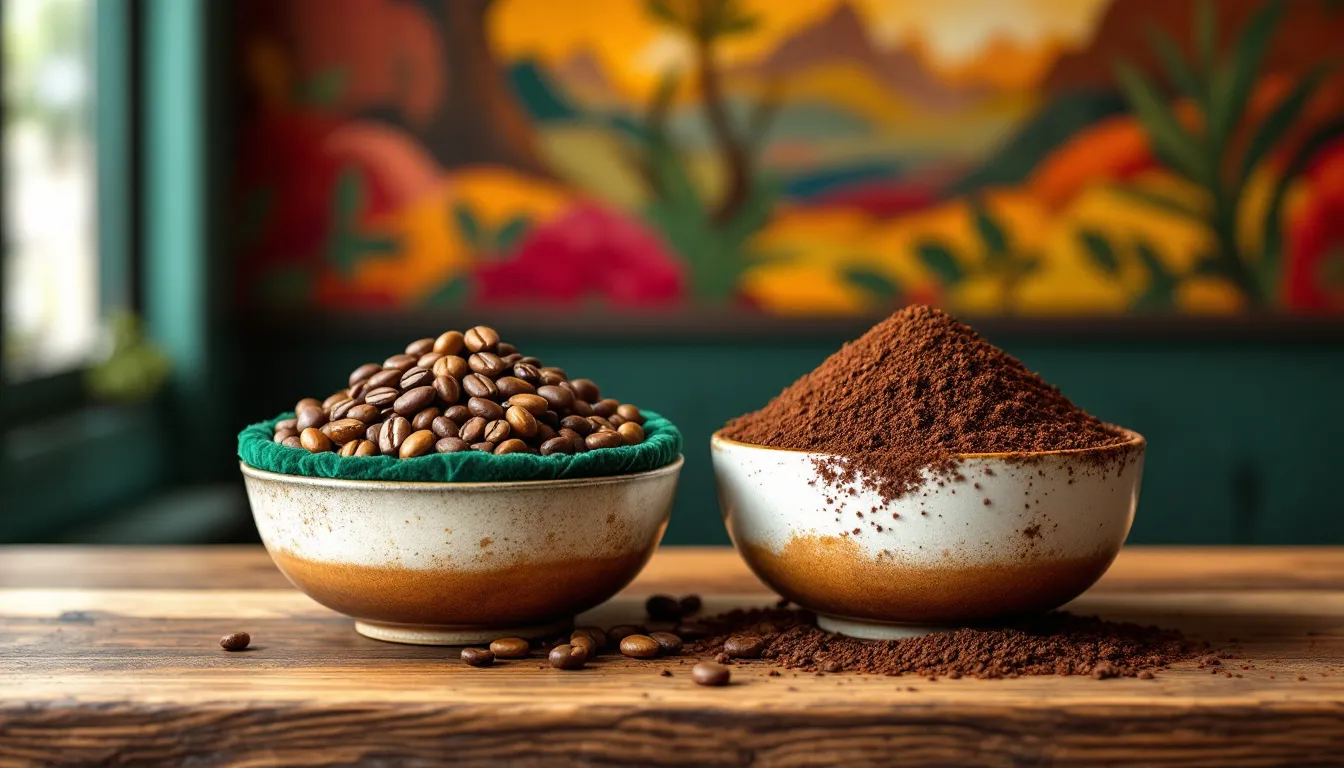
The choice between whole bean and ground coffee is a common dilemma for coffee lovers. Whole bean coffees retain freshness longer than pre-ground options, preserving their distinct flavors. This makes them an excellent choice for those who prioritize flavor and quality.
Whole beans also offer the ability to customize the grind size based on your preferred brewing method. This flexibility allows you to experiment with different grind sizes to achieve the best possible extraction and flavor from your coffee.
While whole beans provide superior flavor, ground coffee is more convenient for quick preparation. If you’re short on time or don’t have a grinder, pre-ground coffee can be a practical option. However, it’s important to note that ground coffee loses its flavor more quickly, so it should be consumed soon after opening for the best taste.
Summary
To sum up, the journey to discovering the best whole bean coffee involves understanding the types of beans, the importance of freshness, and the nuances of single origin vs. blends. We’ve also covered essential tips for brewing and storing coffee to ensure you get the most out of your beans.
Choosing high-quality coffee beans, whether organic or non-organic, and understanding how to store them properly can significantly impact your coffee experience. The freshness of your beans and the method of brewing can elevate your cup from good to extraordinary.
We hope this guide has inspired you to explore the world of whole bean coffee and find your perfect brew. Happy brewing!
Frequently Asked Questions
What is the difference between Arabica and Robusta beans?
Arabica beans deliver a smooth, complex flavor, making them a favorite for many coffee lovers. In contrast, Robusta beans are known for their stronger, more bitter taste.
How does the processing method affect the taste of coffee?
The processing method really impacts the flavor of your coffee—natural processing brings out fruity and sweet notes, whereas washed processing delivers a cleaner, brighter taste. So, depending on your mood, you might prefer one over the other!
Why is freshness important for coffee beans?
Freshness is crucial for coffee beans because freshly roasted beans provide a richer flavor, while aging causes a loss of their natural oils and aromas. So, for the best taste, always choose fresh beans!
What are the benefits of whole bean coffee over ground coffee?
Whole bean coffee is fresher, preserving more distinct flavors, and lets you customize the grind size to suit your brewing method. It’s a simple way to enhance your coffee experience!
What storage methods help maintain coffee bean freshness?
To keep your coffee beans fresh, go for airtight, opaque containers and stash them in a cool, dark spot away from moisture and light. This simple tip really makes a difference!
